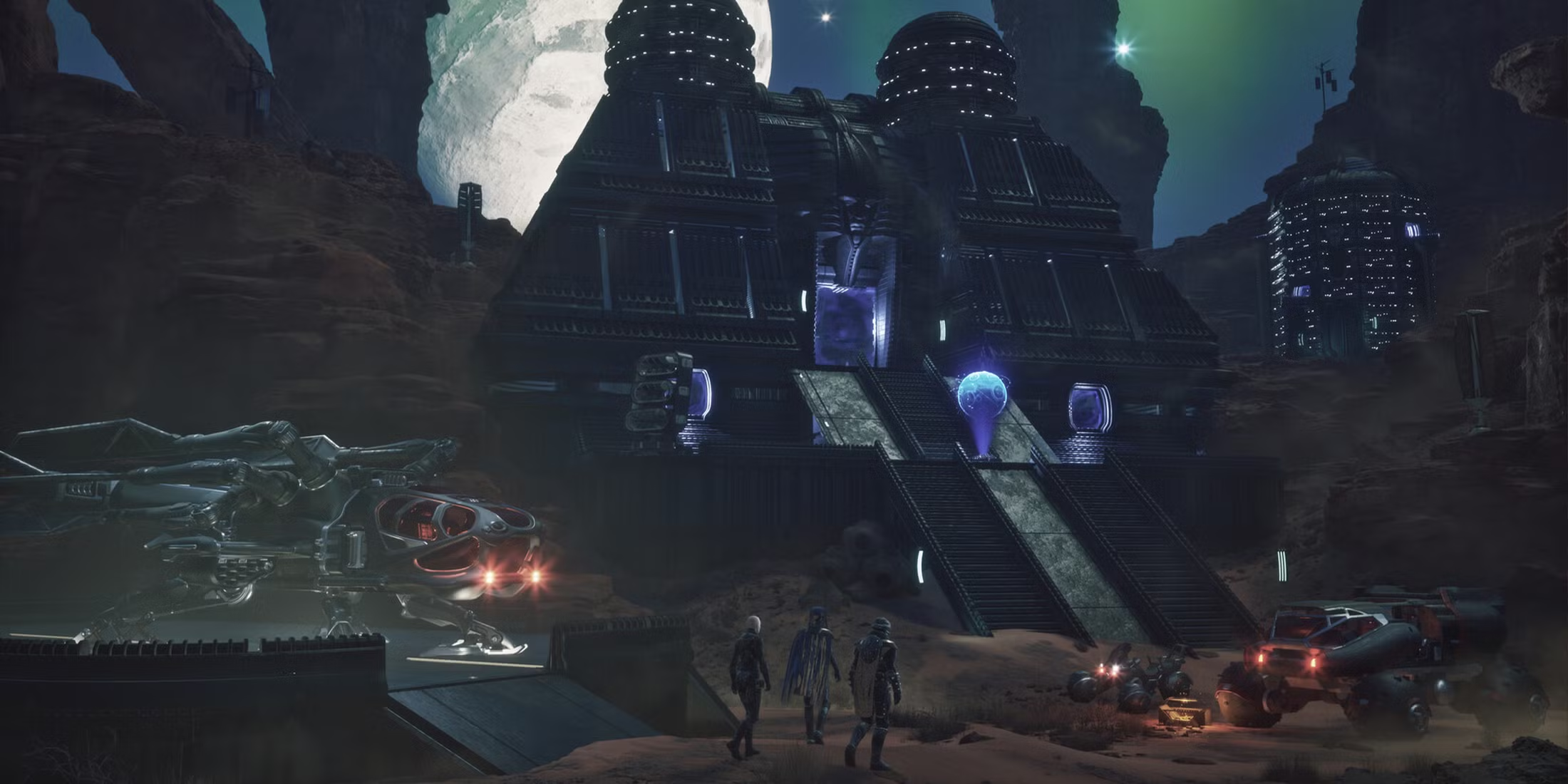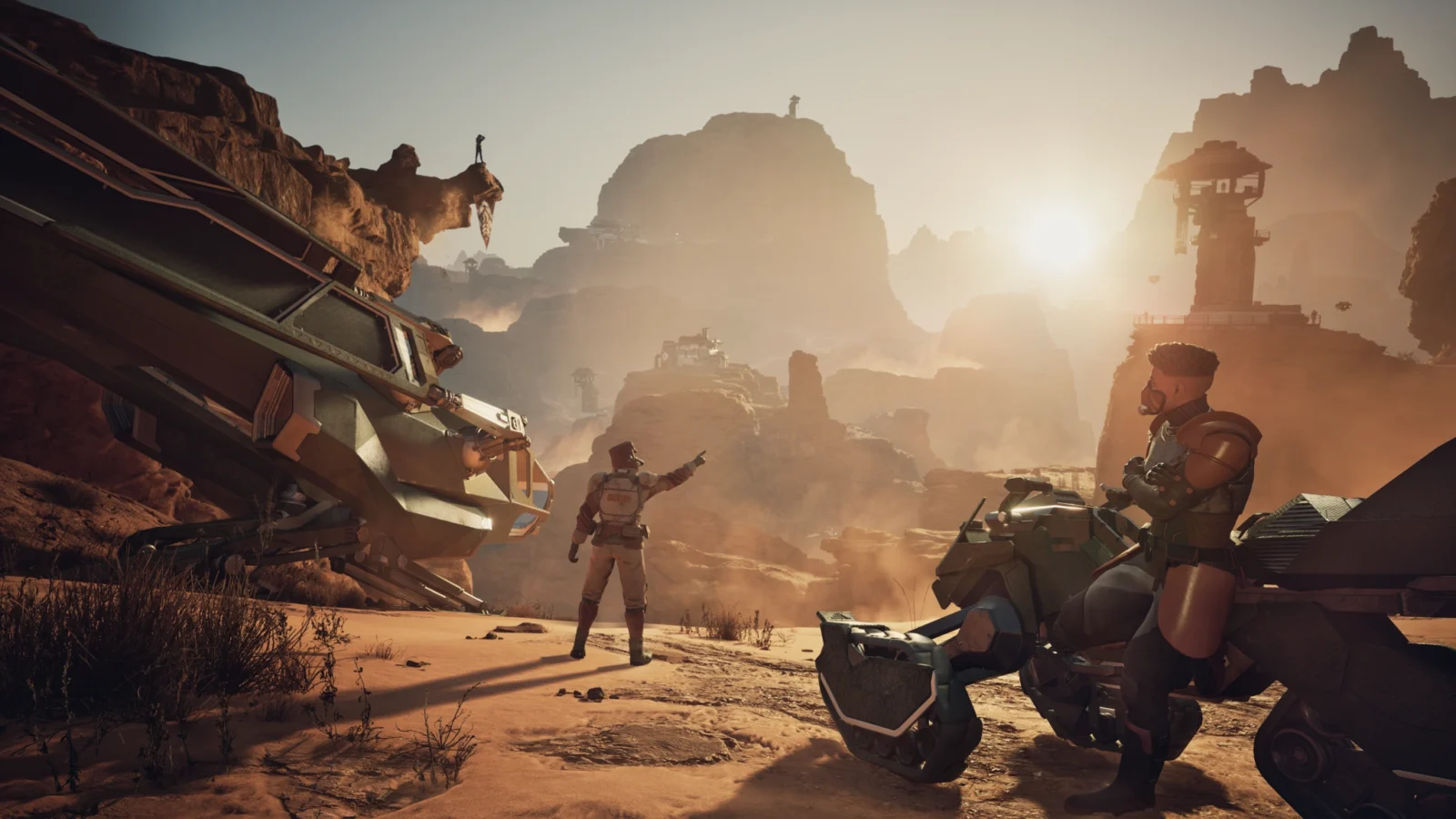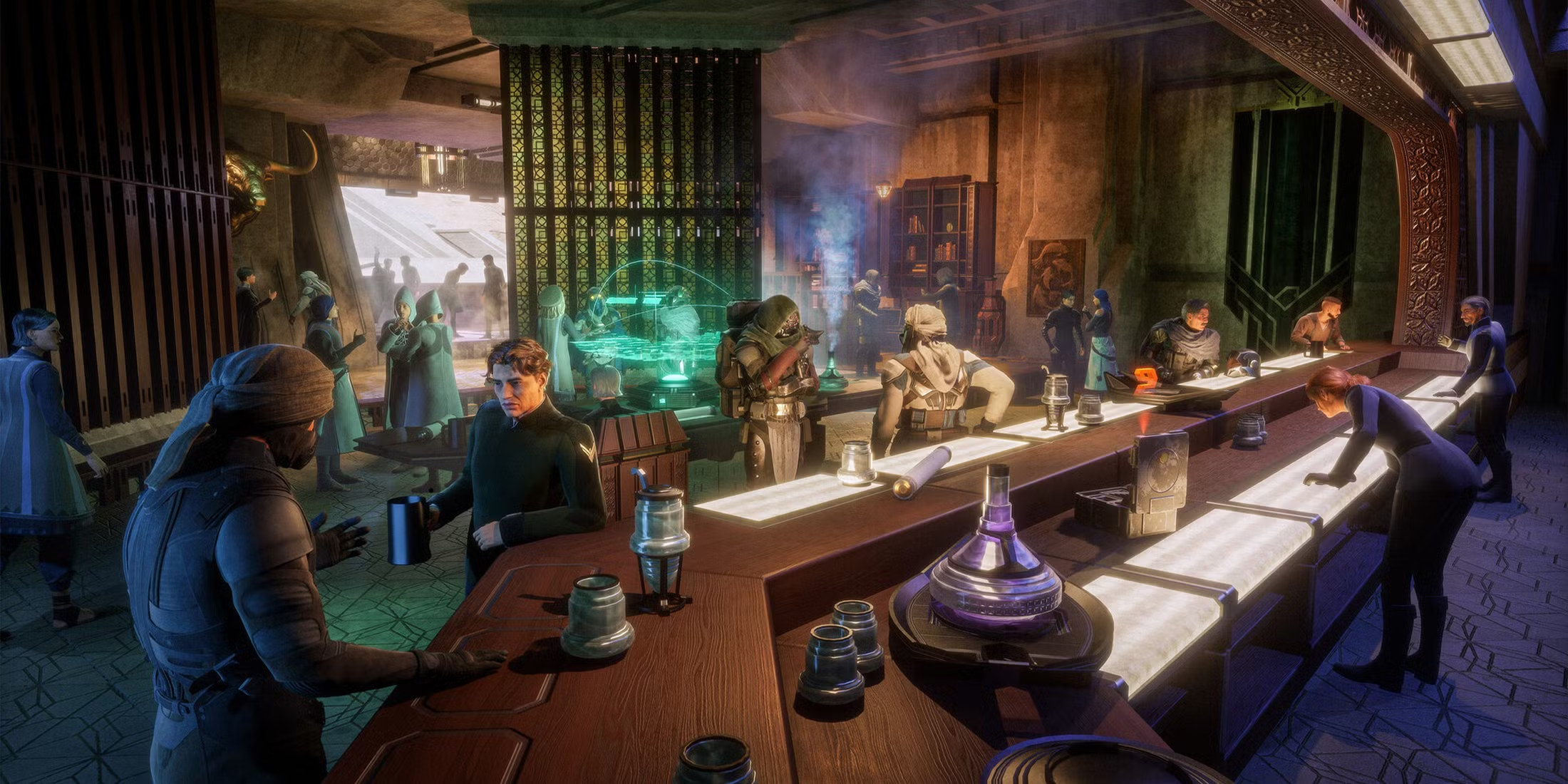TL;DR: Dune: Awakening nails the spirit of Arrakis with awe-inspiring atmosphere and uncompromising survival mechanics. But while the desert feels alive and vicious, the combat feels like it’s been caught in a sand trap of its own design. A richly immersive, sometimes grindy MMO that understands its universe but doesn’t always evolve its systems to match.
Dune: Awakening
The Spice Must Flow – But So Must You, Constantly
Let me tell you about the first time I died in Dune: Awakening. I was freshly spawned, half-dressed in stitched-together desert rags, and wobbling on my legs like a newborn sandworm. I saw something shimmering on the horizon. “Water?” I asked myself like an idiot. Five minutes later, I was sprinting for dear life from a sandworm whose scream made my real-world dog whimper. I tripped on a dune, forgot to check my hydration meter, and my screen faded to black as my gear was unceremoniously lost to the wind.
That’s Dune: Awakening in a nutshell: brutal, beautiful, and built for players who aren’t afraid to be eaten by the planet itself.

Set in an alternate timeline where Paul Atreides never existed (an intriguing “what if” that avoids the lore trap of shadowing mainline canon too closely), Dune: Awakening tasks you with surviving on Arrakis in a world where the political chessboard has shifted, but the stakes remain sand-sharp. You’re not Paul. You’re not even Stilgar. You’re just someone trying not to die from thirst, sunstroke, or worm.
Arrakis Is the Real Star Here
The absolute triumph of Dune: Awakening is Arrakis itself. The worldbuilding is impeccable, from the pulsing menace of Coriolis storms to the thunderous reveal of sandworms breaking through dunes like titanic predators. You don’t walk through this world. You tiptoe, listening for signs that the desert might suddenly decide you’ve overstayed your welcome.
Funcom gets the vibe right. The minimalist UI lets the visuals speak. The soundtrack, full of ominous drones and echoing, metallic overtones, wraps around you like a stillsuit in audio form.

But the immersion goes deeper. Hydration isn’t just a stat—it’s a life philosophy. You’ll constantly track water levels, seeking shade or nighttime journeys to avoid the punishing sun. It’s not hand-holdy. It doesn’t care if you’re new. In that way, it reflects Frank Herbert’s own philosophy: survival in Dune is not a right. It’s a privilege earned through adaptation and respect.
Survival Isn’t Optional – It’s Your Job Description
Survival MMOs tend to fall into one of two categories: the ones that try to help you thrive, and the ones that make you feel like nature itself wants you dead. Dune: Awakening gleefully embraces the latter. And weirdly? I loved it for that.
You’re not fussing over hunger or sleep, but you will become intimately familiar with dehydration, sunstroke, and heat-induced exhaustion. It feels a little cruel at first, but then you start to learn. You watch the shade. You plan around the Coriolis storms. You build gear that makes you marginally less likely to die horribly. You stop being prey and start thinking like a Fremen.

Crafting is robust and slowly turns from “fun hobbyist project” to “obsessive lifestyle.” Early on, you’re slapping together scrap gear with duct tape and optimism. But by the mid-game, you’re blueprint-deep in tech trees, and everything you want to make is buried under six layers of rare minerals, faction-specific knowledge, and logistics that would make a mentat sweat.
And yes, it’s grindy. Incredibly grindy. But like the best parts of EVE Online or Valheim, the grind feels tied to a purpose. Your base matters. Your sandbike matters. Your standing with the Atreides or Harkonnen? That really matters.
MMO Mechanics With Political Bite
Dune: Awakening doesn’t let you wander forever in peace. Eventually, you’ll run up against factions—and here, the game starts to tap into the geopolitical intrigue of the source material.
You pick a side. You earn faction-specific perks, blueprints, and narrative threads. The Landsraad system, a sort of in-game senate, lets guilds and factions vote on world-altering policies. It’s not as deep as Crusader Kings, but it’s one of the best stabs at political gameplay I’ve seen in an MMO.

There’s a sense of growing identity. You’re not just a survivor—you’re a representative of a worldview, a planetary origin, a mentor lineage. Every choice echoes with narrative consequence, even if those consequences are mostly about how cool your armor looks when you die in the sand.
Combat – Or, the Sword in the Sand
Let’s talk about the sore point: combat.
Melee combat should feel like the heartbeat of Dune. The lore glorifies slowblade technique, shield tactics, and intimate, deadly encounters. Instead, Dune: Awakening’s melee feels like being trapped in a cutscene that forgot to end. It’s clunky, unsatisfying, and borderline suicidal in any real fight.
Enemies favor ranged combat, and while there’s a certain logic to that—guns are easier—it betrays the fantasy. Slowblades exist for a reason. Shields are designed to reward close-range tactics. But the game rarely creates space for that fantasy to breathe.

Stealth is worse. It’s barely implemented, a whisper of a mechanic. You can crouch, you can try to sneak, but the AI is more confused than fooled.
It’s not unplayable. But compared to the loving care poured into the survival systems and worldbuilding, combat feels like it was coded by an intern who just got out of Unity Bootcamp.
Building Yourself in the Desert
What the combat lacks in finesse, Dune: Awakening more than makes up for with player expression. Character creation is layered and lore-driven: you pick your caste, your planet, your mentor. These aren’t just cosmetic—they nudge your narrative flavor, your perks, your allegiances. It’s not quite Baldur’s Gate 3 levels of impact, but it’s more meaningful than the average MMO.

Base-building is where I really lost hours. It’s reminiscent of Fallout 76‘s C.A.M.P. system, but tighter, cleaner, and with far more variety. You can shape your home out of the desert with architectural poetry—or just make a weirdly shaped hut with a turret on top. The tools let you dream, and that’s rare in a genre often bogged down by cookie-cutter blueprints.
Vehicle customization is similarly impressive. Your ornithopter becomes more than a means of travel; it becomes your desert signature.
The Bugs That Creep In
It wouldn’t be an MMO launch without bugs, but Dune: Awakening is shockingly stable. I tested it on an RTX 5070 Ti, and the performance was butter-smooth, even at 4K with DLSS active. I clocked nearly 300 FPS in the desert at night, though my rig wheezed a bit during storm encounters.
Clipping issues? Occasionally. Glitches while climbing? Sure. But the game includes an “unstuck” command, and the problems are rare enough not to dominate the experience.
The biggest immersion breaker wasn’t technical. It was story pacing. The narrative is there, but it’s so soaked in lore that non-Dune readers might feel like they’ve stumbled into a college lecture with no syllabus.

A Game That Honors Its World
There’s a reason Dune: Awakening stands out in the sea of survival MMOs: it knows what it’s about. It doesn’t water down the brutality of Arrakis. It doesn’t cater to the impatient. It asks you to commit—to immersion, to suffering, to learning how to live like the Fremen.
You’ll sweat. You’ll starve. You’ll be eaten. But you’ll also look up at the twin moons of Arrakis from your self-built tower in the desert and think, “This? This was earned.”
It’s not perfect. The combat needs reworking. The grind could use tuning. And stealth? Maybe just delete it. But the vision is strong, the execution is mostly on point, and the atmosphere? Peerless.

Final Verdict
Dune: Awakening is a masterclass in environmental storytelling and survival mechanics that only stumbles when it tries to get too punchy. It captures the soul of Herbert’s world better than any game before it and delivers a brutal, beautiful MMO for those who dare to play in the sand.
If you’ve ever dreamed of earning your place on Arrakis—not just living in the world, but surviving it—this is your game. Just don’t forget your stillsuit.







